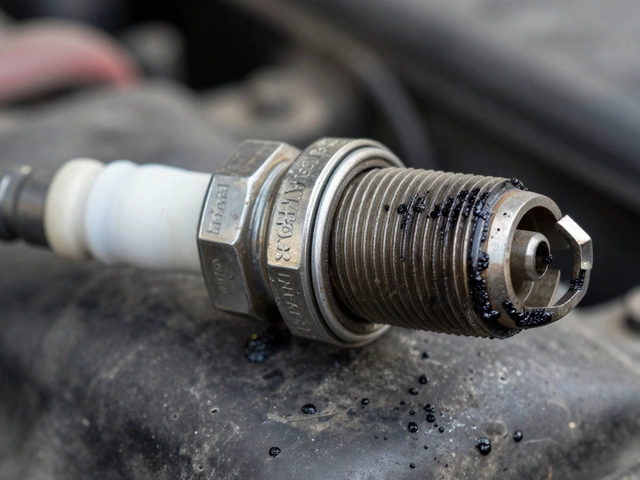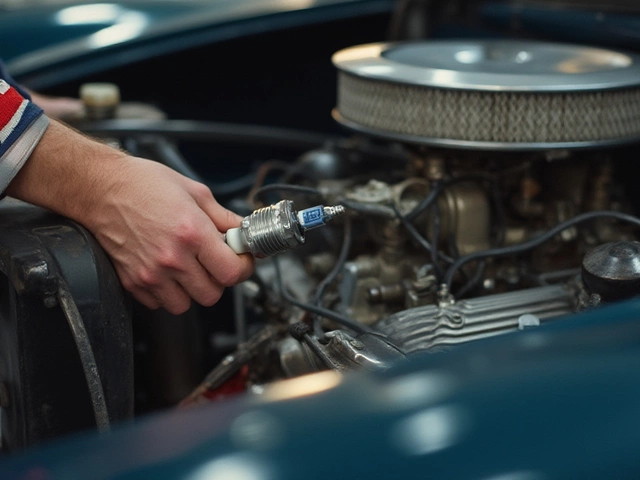Have you ever thought about what's going on under the hood of your car? One of the crucial things keeping it all ticking is engine oil. It lubricates those moving parts, helps cool the engine down, and cleans out any nasty bits. But when the oil gets dirty, things start to go wrong. So, how can you tell if your engine oil needs attention?
First off, listen up. If your engine’s making weird noises, like it's grumbling or knocking, it might be crying out for help. Dirty oil doesn't lubricate as well, making the engine work harder – and noisier. Check your dashboard for any warning lights. Your oil change indicator light is there for a reason!
Notice a drop in fuel efficiency? Yep, dirty oil can lead to poor mileage. The sludgier the oil, the less efficient your car becomes. Also, if you see more smoke billowing from the exhaust than usual, that could be your car's way of telling you it's time for fresh oil.
- Understanding Engine Oil and Its Role
- Signs Your Engine Oil Might Be Dirty
- Why Dirty Oil is a Problem
- Tips on Maintaining Clean Engine Oil
Understanding Engine Oil and Its Role
Engine oil might seem like just another liquid you pour into your car, but it's doing some serious hard work under the hood. Imagine it as the lifeline of your car’s engine, ensuring everything runs smoothly. Without it, friction would wreak havoc on engine parts.
At its core, engine oil does three main things. First, it lubricates moving parts, reducing the wear and tear that comes from metal parts grinding together. Secondly, it helps cool the engine by carrying away heat. Heat is generated when the engine runs, and without a way to disperse it, your engine could overheat in no time. Lastly, oil keeps the inside of your engine clean by preventing dirt buildup and carrying it to the oil filter.
"Proper vehicle care starts with regular checking and changing of engine oil," says Auto Expert James Arnold. "Neglecting this can lead to premature engine wear and costly repairs."
So, how often should you be thinking about your engine oil? Well, it's not a one-size-fits-all deal. The type of car you drive, how often you drive it, and even your driving style can affect how often you need an oil change. Here’s a simple rule of thumb: check your oil monthly and schedule changes every 3,000 to 5,000 miles or as per the car manual. If your commute involves a lot of stop-and-go traffic, you might need to change it more often.
Mileage Vs. Time: What Determines Oil Change?
Most people think in terms of mileage, but time is equally essential. Even if you don't drive often, oil breaks down over time. So don’t let it linger beyond six months without a change. Keeping a regular schedule helps keep your engine in top shape and ensures you're not caught off guard by surprise repairs.
With the benefits clear, there's no reason to put off maintaining clean engine oil. It’s one of the easiest ways to prolong your car’s life and keep it purring like new. And remember, always use the oil type your car manufacturer recommends – it matters more than you might think!
Signs Your Engine Oil Might Be Dirty
Dirty engine oil is like a worn-out sponge—it just isn't doing its job right. So, how do you know when it's time for a change? Here are some tell-tale symptoms of dirty engine oil that you should keep an eye out for.
Strange Engine Noises
One of the first things you might notice is a change in sound. Your engine may start to make clunking or knocking noises. This happens because grimy oil isn't lubricating those moving parts properly, making them grind and scrape. It's never a good sign, so it's best to check it out pronto.
Oil Change Light
Most modern cars are equipped with a handy oil change indicator light. If this light is blinking or stays on, don't ignore it. It's a clear sign that your oil might be less about lubrication and more about sludge.
Thicker, Darker Oil
A quick dipstick test can reveal a lot. If the oil is dark, thick, or gritty, it’s probably time for an oil change. Clean oil is typically amber and flows smoothly.
Decreased Fuel Efficiency
Keeping an eye on your mileage? Well, bad oil can gunk up the works, literally. An engine loaded with the dregs of dirty engine oil often has to work twice as hard, which means more trips to the gas station.
Excessive Exhaust Smoke
Noticing clouds of smoke puffing out of your tailpipe? That’s not normal. Dirty oil can increase the oil burning rate, leading to increased smoke and potentially higher pollution levels.
While keen eyes and ears are your first line of defense, regular oil checks and changes can ward off these signs before they even start. It's all about keeping that engine purring smoothly.

Why Dirty Oil is a Problem
Think of dirty engine oil as a bad flu in your car. It's more than just being low on oil; it's about the oil being filled with gunk it shouldn't have. Over time, all those tiny metal shavings, dirt, and grime mix in. The consequences? They can be a real headache.
First off, your engine’s no friend to friction. The job of oil is to cut down on this. But when the oil's dirty, it gets thicker, making it harder to flow where it needs to. All that sludge can stress out your engine and could lead to overheating.
Another nasty side effect of dirty oil is the potential wear and tear on your engine’s parts. Metal rubbing against metal with gritty oil between them will accelerate wear, leading to more frequent and costly repairs.
Impact on Engine Performance
Vehicles rely on oil viscosity – how easily the oil flows. Dirty oil? It loses that vital quality, and the engine ends up using more fuel than usual. That’s why your mileage takes a dive.
Plus, your emissions go up. Dirty oil can wreck your catalytic converter, leading to increased pollution. Imagine taking a deep breath in a smoke-filled room – your car feels the same with impaired ability to reduce harmful emissions.
Let Your Engine Breathe
Want to keep things running smoothly? Stick to regular maintenance. Car manufacturers have recommendations suited to your specific model on how often to change that oil. Generally, it’s a good idea to change it every 3,000 to 5,000 miles for older vehicles. Newer models might allow more.
- Use the right type of oil. Different engines use different oils. Follow the manufacturer’s specs.
- Change the oil filter too. A clean filter keeps the contamination in check, preventing dirty oil circulation.
- Check oil levels regularly. Make it a part of your routine to avoid engine trouble down the line.
Remember, your car’s heart is its engine. Keeping the oil clean is like giving it a regular health check-up. Doing so not only extends the life of your car but also saves money and stress in the long run.
Tips on Maintaining Clean Engine Oil
Keeping your engine oil in tip-top shape isn’t as complicated as it sounds. It just needs a bit of attention and a couple of handy habits. Let’s dig into some practical tips you can easily incorporate into your car care routine.
Stick to a Regular Oil Change Schedule
Regular oil changes are the backbone of maintaining a healthy engine. Most cars have recommendations for changing oil every 3,000 to 5,000 miles, but it's always a good idea to check your owner’s manual. Sticking to this schedule ensures that the oil can effectively lubricate and clean the engine components.
Check Oil Levels Frequently
Make it a habit to check your oil level at least once a month. When you’re at it, pop the hood and pull out the dipstick. Wipe it clean, dip it back in, and pull it out again to see if the oil level is between those good ol' min and max marks. If it’s low, top it up with the right oil grade.
Use High-Quality Oil and Filters
Not all oils and filters are created equal. Going for high-quality engine oil and filters ensures better performance and longevity for your engine. Think of it this way—just like you wouldn’t feed a race car rubbish fuel, your car deserves the good stuff too.
Inspect for Leaks and Check the Oil’s Condition
Whenever you're checking the oil level, take a second to look under the car for any signs of leaking oil. Also, pay attention to the oil’s appearance on the dipstick. If it looks grubby and feels grittier than peanut butter, it's time to think about an oil change.
Listen to Your Engine and Be Responsive
Your car talks to you, well, metaphorically. Odd noises or performance issues could be hints that your oil is dirty or running low. Be responsive to these signs, and you’ll save yourself bigger headaches down the road.
By weaving these straightforward tips into your routine, you give your car a longer, healthier life. Little tweaks here and there can make a world of difference in your vehicle's performance and your peace of mind.






